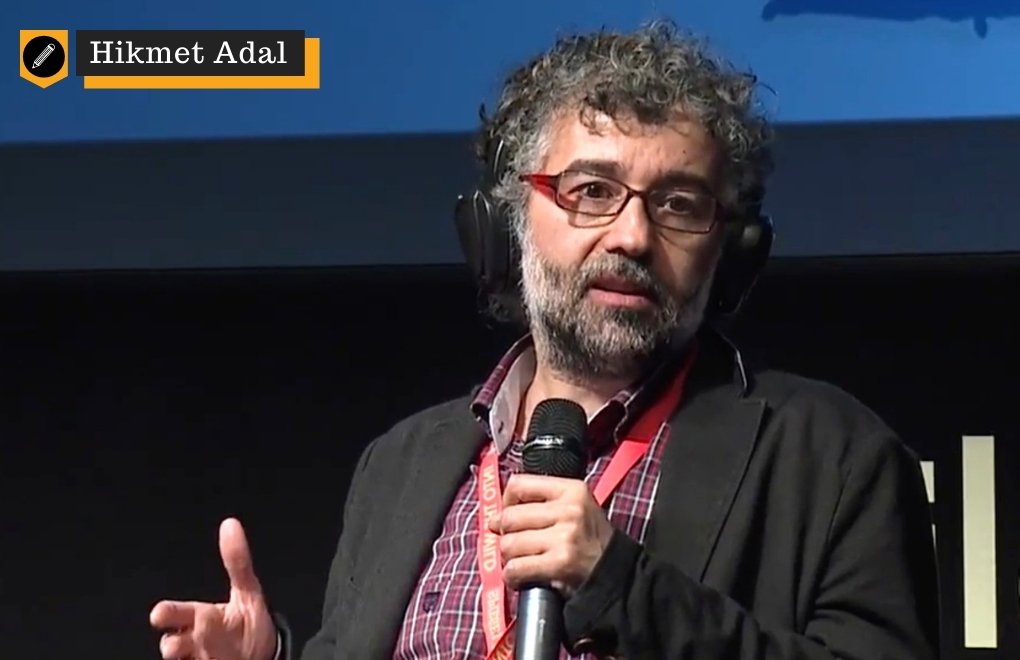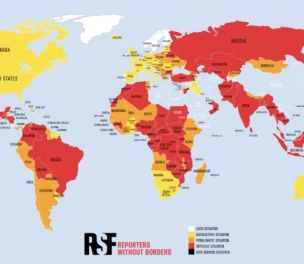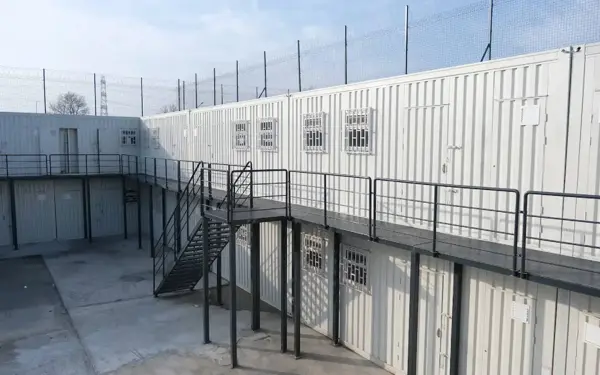Click to read the article in Turkish
The Reporters Without Borders (RSF) released its 2021 World Press Freedom Index today (April 20). This year's RSF index has once again shown us how grave the situation of press freedom in Turkey is.
Let's put it this way: In the 2021 World Press Freedom Index, Turkey ranks 153rd among 180 countries. In 2002, when the RSF released its first index, Turkey's ranking was 99th. While this decline has made Turkey a 'not free' country in terms of press freedom, its more concrete results have been the journalists who have found themselves at courts and in prisons.
According to RSF Representative to Turkey Erol Önderoğlu, this situation is a part of the 'domestic and national journalism' plan of the government. According to Önderoğlu, 'censorship and bans are everywhere' in Turkey. Let's listen to the rest from Erol Önderoğlu himself...
'This is a problem of judicial independence'
What does the RSF Press Freedom Index tell us about Turkey? What should we infer from its ranking as the 153rd country?
The data shared in the index show that media freedom in Turkey has been undermined to such an extent that it harms democratic values and institutionalism. Journalism rights are not recognized as such until they come before the Constitutional Court or before the European Court of Human Rights (ECtHR). There is a problem of judicial independence which has come to great harm as a result of the government's instructions.
Political power holders in Turkey argue that the press has never been so free in the country. The 'judicial package' has recently passed the Parliament. It was a few weeks ago that the 'Human Rights Action Plan' was unveiled. There are talks about a new Constitution. Don't you think what the government says and does are in contradiction?
Unfortunately, the ones who want to create a 'domestic and national' journalism resort to the illusion that the press has never been so free before; it must be because they have to give the impression that they are occupied with the 'Human Rights Action Plan.'
What is said is in a stark contrast with what is done in practice to silence journalism in the country. Even though the number of arrested journalists has been on the decrease in Turkey over the past two years, the practices that put journalists' minds behind bars without actually sending them to prison - such as judicial control measures, the deferment of the verdict, etc. - do not go unnoticed. Censorship and bans are everywhere!
'Citizens prevented from bearing witness'
Courts, the Radio and Television Supreme Council (RTÜK) and the Press Advertisement Institution (BİK) as the means of pressure on news, expression and though in Turkey. How do these elements pose a threat to freedom of expression in Turkey?
While the RTÜK, BİK and Presidency's Communications Directorate, as autonomous institutions, are expected to be in an open and transparent relationship with journalists, they generally outcast critical journalists through some administrative, political and ideological attitudes and decisions and they punish journalists by various means.
When they are not met with an affirmative attitude that they see desirable, they do not hesitate to deprive journalists of their rights.
Not only does this authoritarian attitude narrow the media's space of freedom by disregarding democratic values, but it also deals a blow to diversity of information to be offered to citizens, thereby harming their field of vision. Journalists in Turkey are not only widely placed under harassment by imprisonment, citizens are also prevented from approaching and criticizing journalists or bearing witness to unfavorable incidents and issues.
When we look at the top countries in the Press Freedom Index, we - once again - see countries such as Norway, Finland and Sweden? What differentiates Turkey from these countries?
When we compare Turkey with the countries at the top of the Press Freedom Index, we can say that Turkey does not only have a historical backwardness, but it has also given up their targets of transparent society and their values of pluralistic media and tolerance. Considering that Turkey now ranks 153rd in the index while it ranked 99th 19 years ago, how can we explain this other than doing away with the European Union (EU) reforms?
All in all, the pressures experienced by journalists in Turkey over the past 10 years were a harbinger of the current social crisis in the country.
'Media occupied with manufacturing consent'
Lastly, how would you describe the state of freedom of expression in the world based on democratic norms and universal criteria?
The embodiment of press freedom and pluralism and transparency does not only make societies happy, but it also makes them indestructible in tough days. The EU has been going through several hardships, especially amid the economic crisis and COVID-19 outbreak.
But as in the case of citizen-based politics, journalism prioritizing people's right to be informed also has an irreplaceable role in foreseeing dangers and developing solutions. As for Turkey, just as no one foresaw the economic crisis which had long been approaching by giving warnings, it was also caught unprepared by the pandemic. Because a major part of the media feeding on the government was not occupied with informing, but with manufacturing consent in favor of the government.
The RSF Index shows that disinformation and populist politics harm the media in Europe and in Turkey, as in the case of several places across the globe. The RSF has reported that in 73 percent of the world, or 130 countries, journalism might be under partial or severe restrictions. During the Trump administration in the US, hundreds of journalists were attacked mostly by far right extremists; 130 journalists were taken into custody.
Therefore, such cyclical attacks on journalists in democracies seem to give free rein to the administrations based on authoritarianism or pressure. The traces of such complacency might be observed in the aggravating pressures in the Middle East and Africa during the pandemic. (HA/SD)











